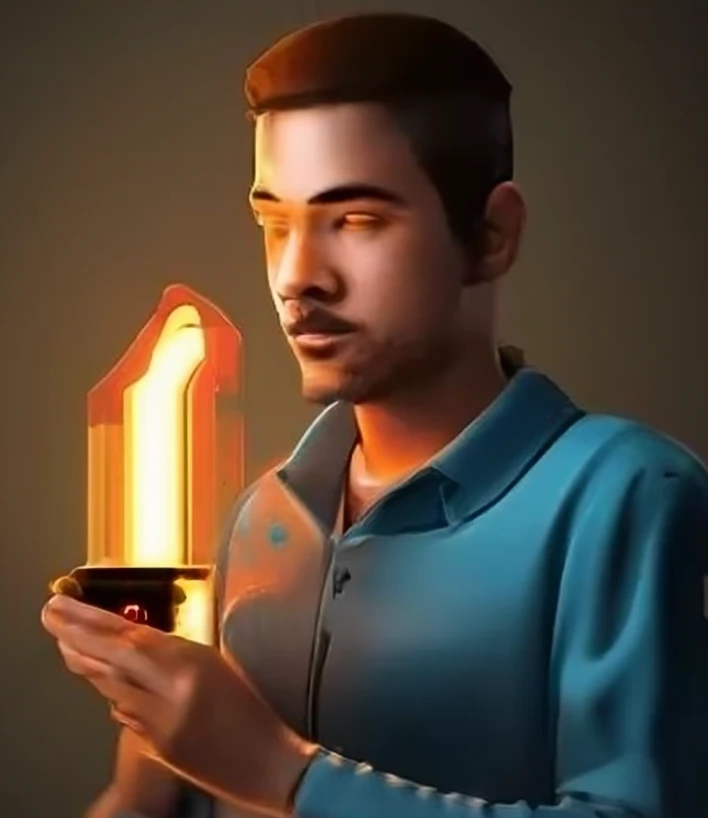How to Spot Propaganda 101
deleted by creator
We teach this all the time, though. It’s called doing research and citing sources. There is no doubt the education system has probably failed millions of people on this and propaganda does keep getting more advanced. At the end of the day, though, it really comes down to the basics they teach in English about writing reports and making sound arguments.
To be honest, I always sucked at English, too. It wasn’t till college did it come together for me. I think it’s because we quit focusing on structure and focused solely on content. Really, though, I’m not sure what was different.
And how’s it working?
That’s right. And thus my suggestion.
I would add communication, business writing and problem solving to the existing curriculum. They are the biggest deficits I see in new grads (even liberal arts).
The even liberal arts thing made me spit my coffee.
They are often smart, talented people, but lack the skills to operate in a business (business writing, comms, etc.). We recruit, then train the heck out of them and have had good outcomes.
business writing
I don’t know if this is still a problem, but I remember reading that some decades back, a number of companies had problems with people writing absolutely unusable emails.
The problem, as I recall it being presented, was that historically the norm had that you’d have a secretary take dictation. That secretary was basically a professional writer, and would clean up all the memos and whatever that went out.
But at some point, companies generally decided that people should just be emailing each other directly. Now you weren’t dictating to a secretary. You were typing an email yourself. The problem is that this meant that there were suddenly a lot of people who had relied on secretaries to clean things up for many years who had had no practice and were suddenly writing their own material…and it was horrendous.
I’d guess that that was probably some twenty years ago now, at least, so maybe the problem has aged out.
Sadly, it has not gotten better. It is something I actively have to train people when they join our company.
Business writing is like the one thing LMMs have actually made useless
Hard disagree. That would require a library of well written emails to reference (which, in my experience are not very common).
More art classes
I would teach critical thinking, probability, empathy and logic more
Financial literacy would be considered an essential subject.
This right here. My parents utterly failed to teach me financial literacy, and it wasn’t mentioned once in grade school or high school. But I learned how to stuff a pillow (why?!) and definitely got a C for frying an omelet the way I like it during a totally antiquated home economics class.
If financial literacy had been properly taught, I’m pretty sure I wouldn’t be a decade behind my contemporaries. It’s frankly a complete failure of our education system that this gap in critical knowledge hasn’t been filled.
If religion is going to be involved, they all need to be included equally
Is there enough days in the semester? They can’t get away without representing my religion. That is church of the big sleep. Let’s face it, we will spend more time dead than alive so our natural condition must be closer to sleeping then it is being awake in this chaotic ooze called life. It’s obvious to me that life is abnormal and we should all use this time to better navigate our dreams and others sleep states because that will better prepare us for what’s to come.
And it would be optional credit, not mandatory.
I would go by tiers.
Kindergarten/Pre-School is fine as it is. Middle-School is where you’re to learn the basics of life and in general of what you need to know when developing. High School is to be the place where those same courses are advanced, like you’re to learn how to budget, how to file taxes, sex education a priority .etc
College is the real deal where you’re to learn even more advanced courses. These things would just assist eachother so nobody feels like they’re left behind, everyone is on the same page.
I think I’d keep a lot of the core stuff, esspecially at lower levels, but at mid levels, I’d try and put a lot less emphasis on academic work, and more on practical implementation of those skills. For example, in place of a study of shakesphere, I might put a lesson on how ads are written. The point would still be to encourage better media literacy, but ads are something we see constantly in the modern world, and require an emphasis on critical thinking most literature analysis ignores. Another example might be a reduction in the amount of math classes, but requiring a skill that uses math practically, such as woodworking or 3D modeling, to try and practice logic and problem solving off-the-page.
Ideally, this would help cover a lot more real-world skills, and give students a chance to try a broader range of fields earlier, as well and encouraging a deeper and more applicable understanding of the underlying skills meant to be taught.
Maybe not a direct answer to your question but I’d try to keep it the lowest number of subjects at any given time with deeper learning in them.
In school I was genuinely interested in learning, but every instructor seemed to hand you a mountain of homework each day and acted like their subject was the most important. I spent most my time scrambling to get it all done and in the end only learned what little I could to simply pass.
I remember this especially with math, I loved math but if I took the time to study better and actually learn the concepts, I wouldn’t have had the time to finish my other homework.
I’m not sure if there needs to be fewer subjects, but I feel like there should be much more focus on why what students are learning matters. Passing a standardized test is not a goal kids care about. This invariably has to be at the expense of rote information since there is only so much time, though I think that is a worthwhile trade.
Nobody cares about the exact year that Mehmet II conquered Constantinople. But the impact of that on world history is both interesting and significant. I only had one history teacher before college who told students he didn’t care about exact years; if you could give the general period that was sufficient.
As there is no import function on Lemmy; https://www.quora.com/What-are-some-things-schools-should-teach-but-dont/answer/Harri-K-Hiltunen
Most core subjects are about what is possible in the world and give a great rounded understanding of different skills and disciplines available around our planet.
I think food awareness is essential for all young people.
In primary/elementary school, children should have exposure to planting, growing, harvesting, and cooking their own vegetable produce and meals.
In high school, students should be able to kill, prepare, and cook their own animal foodstuffs. Able to opt out of this of course.
Understanding whole foods, cultivation, and livestock for food, would go a long way towards educating people about what quality, healthful food is.
…and that high fructose corn syrup is not food.
That’s a pretty unique answer. What do you think we cut from the curriculum to make room for this?
The ideal would be to use the kitchen-garden time as an example for other lesson concepts. eg.
Area of the garden plots, students measure the length x width, etc.
Volume, measure the amount of water used in a week to maintain the garden.
Vocabulary and spelling of associated horticultural words.
The animal preparation in high-school would be a one off excursion experience, rather than having pens in the school for daily maintenance.
I’ve been done with education for longer than I’ve been in education.
I hope kids nowdays get a well rounded education that is not just the bare necessities of read/write/count but if I had to make a choice I’d prioritize STEM over humanities.
I’d rather live in a boring world with too little music, literature and art where my car works and I’ve got water in the tap than the opposite.
I wouldn’t. I’d hire someone to do it who has deep understanding on the subject.
To be fair. That would be a first for the education system.
1 Critical thinking
2 Healthy relationships
2 Cookery
3 Exercise
4 Arts & Engineering
5 The usual subjects
4839 AI (or whatever the industry du jour is.)
Based on my experience and that of my own kids, what worked and didn’t:
Kids are all different so there is not one plan that will suit them all! In general though - K-6 should be half day of academics, half day of electives and free time, they just need to learn to read and do math comfortably, understand the idea of variables and some basic science about the physical world. Grades 7-12 should have science, literature, maths, art of some sort (kid choice - dance, music, visual art, creative writing, something that makes them think in a different way) and some learning about the world in a cultural sense - political geography, history, government styles. Some sort of physical education too - dance or sport for those able, health and gentle movement education for those who are not able, everyone should learn to maintain their bodies not just their mind, they are connected.
The kids of mine who went through the “IB” here got by far the best education of my offspring, but they were also the most naturally academic of the lot so it suited them, understand? The others would just collapse in the face of a program like that! You can’t just force everyone into the same shape.












